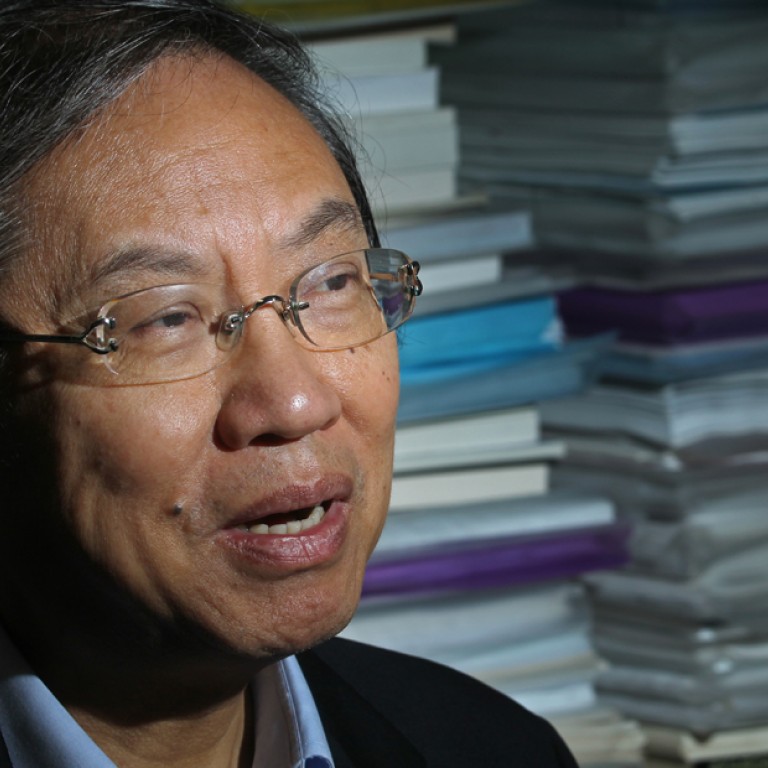
Pan-dems' voting exercise may include government reform plan
Pan-democrat group is willing to consider administration's plan for universal suffrage
The government's political reform package could be one of the options to be included in a civil referendum exercise next year.

The Alliance for True Democracy - a grouping of 26 of the 27 pan-democratic lawmakers - will meet the University of Hong Kong's public opinion programme director Robert Chung Ting-yiu on Wednesday to work out the details of the electronic voting exercise.
It will be a separate exercise from the one to be held by the Occupy Central civil disobedience movement early next year, convenor Joseph Cheng Yu-shek said after a street forum in Mong Kok yesterday.
"Unless the government's proposal is ridiculously undemocratic - in which case we would not have to bother at all - I believe we would be willing to make it an option in our electronic voting exercise to gauge public views," he said.
The government has yet to begin a formal public consultation on its political reform package. Sources said the first round would come by January, but that a concrete package with the details of universal suffrage in the 2017 chief executive election was expected only at the second round, probably in the middle of next year.
Cheng said the alliance's exercise, which would cost about HK$200,000, would be conducted after the government unveiled its proposal.
While the result of the exercise would not be binding, he said it would serve as "an important reference" for the parties' voting preferences.
The pan-democrats' two biggest parties - the Democratic Party and the Civic Party, which each hold six votes in the Legislative Council - had earlier suggested they would cast their votes according to the results of "an objective, accurate and measurable mechanism".
The government needs at least four votes from the pan-democratic lawmakers to pass the constitutional reform, which requires a two-thirds majority.
Cheng said the alliance had already made clear its baseline, which included civil nomination - the concept of a route that would allow a chief executive candidate to run for election after obtaining a certain proportion of voters' nominations.
"We have no secret agenda," he said. "Our consensus is our baseline and our final demand."
In the forum yesterday, Wong Yun-tat, of the Neighbourhood and Worker's Service Centre, said civil nomination was the only way to ensure that the chief executive represented the people.
Democratic Party vice-chairman Richard Tsoi Yiu-cheong said they would reject any screening mechanism.
